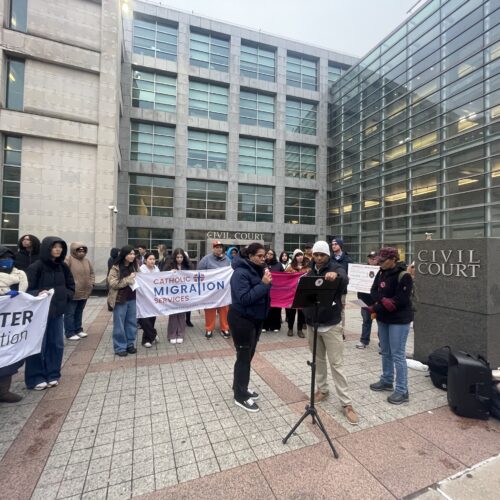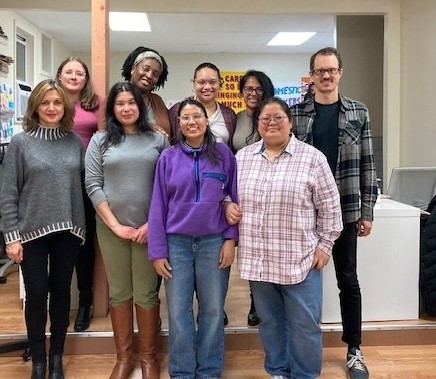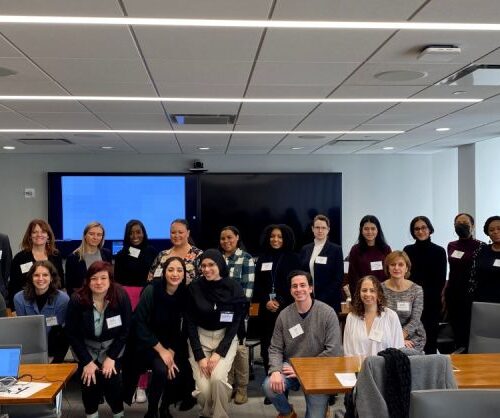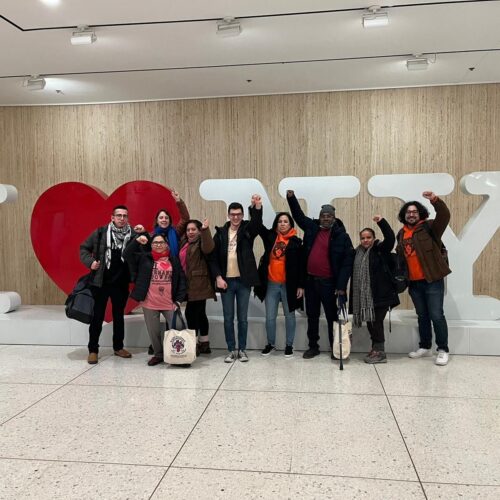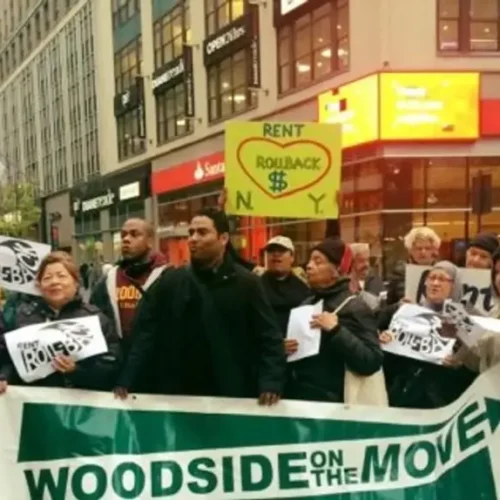Tenant advocates call on Gov. Hochul and Queens electeds to support eviction protections statewide
from https://qns.com/2025/04/tenant-advocates-call-support-eviction-protections/ By Athena Dawson Dozens of protestors rallied in front of Queens Housing Court in Jamaica on Thursday, April 10th, calling on Gov. Kathy Hochul and Queens elected officials to pass crucial statewide tenant-rights legislation. The protest brought supporters of all

